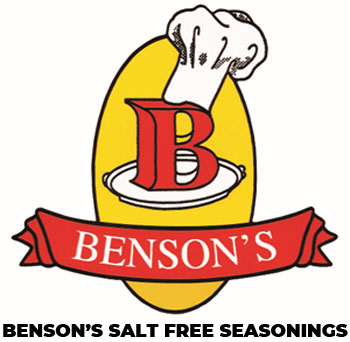Today many of our favorite food choices tend to be high sodium. OK, let’s be honest, we need sodium. It’s not going to harm us if eaten in proper amounts, as you actually need it to survive! Right? Unlike fats, carbohydrates, sugars, oils and other “popular” words that we use when it comes to healthy eating, sodium is necessary. We need it to help maintain the balance of fluids in our body, relax and contract muscles and transmit nerve pulses.
It’s amazing how our body is though. One small problem can become another and another until our body either gives us heart disease, kidney disease and/or hypertension, just to name a few. The way sodium is dealt with inside our bodies is that our kidneys will take the incoming sodium and uses what it needs and gets rid of what it doesn’t need through urine. But just like the saying goes, too much of anything isn’t good and that applies to sodium as well. When you have too much for your kidneys to handle, it will begin to enter your bloodstream, which makes the blood hold more water. Because of this, the blood volume increases which makes the heart work harder to move the blood, which can lead to high blood pressure.
The daily amount of sodium according to the 2010 Dietary Guidelines for Americans is 2,300 mg a day, or 1,500 mg if you are 51 or over. So how exactly do you limit the amount of sodium in your body without getting too little of it in the process? Getting too little sodium is not usually a concern, especially with all the processed foods in our diet. Mother Nature has placed enough sodium in her foods so that we don’t need to add any more to it. Here are some foods that carry a lot of sodium and suggestions to switch them with.
Tips for avoiding high sodium foods:
- Instead of fried/breaded, get something grilled, poached or steamed.
- Salad dressings especially ones that are creamy based have lots of sodium. Get low-sodium dressings, vinaigrettes, or organic ones when available. Even better, learn how to make your own.
- Stay away from fried rice. Go with steamed as it isn’t usually cooked with salt.
- If you want to eat soup, don’t buy too often in restaurants. They are loaded with salt to keep them fresh tasting all day long for customers. Even if you buy the soups in a can, read the labels to make sure it’s not over 500 mg of sodium per serving. Instead, make your own soups.
- Avoid luncheon meats like hot dogs, bologna, sausages and ham which have lots of salt (especially meats that come in those little plastic or paper boxes). Go to the deli counter and get the meats you want by having them slice them for you. You can get less sodium, better quality and it’s usually cheaper by the pound. However, less sodium may be still high sodium. Better yet, roast your own chicken, beef or turkey, with flavorful salt-free seasonings.
Use caution when it comes to sodium and you can improve your health and lifespan. The fresher the food, the better it is for you. Remember that high sodium has a proven link to high blood pressure which can lead to heart failure, heart disease and a possible heart attack or stroke, which is one of the most likely causes of death in the USA. We need to use this knowledge to make wiser decisions when we decide what we want to eat. Choosing not to eat those salted French fries or a ham sandwich, or salting your food at the table could save your life down the road. This is important. Get started by taking small steps on daily basis, by making more healthy food choices and avoiding high sodium foods.
